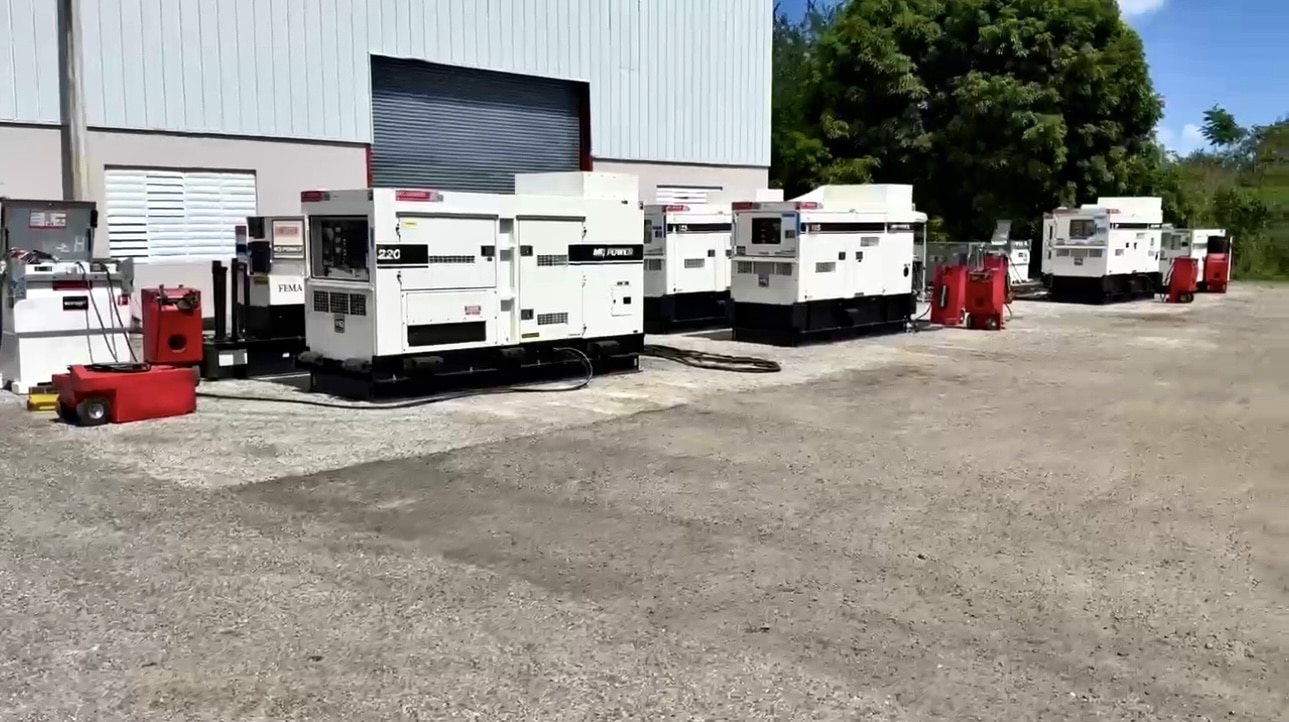Home » MegaWattage Blog » Recommended Service: Load Bank Testing
Recommended Service: Load Bank Testing

In the world of commercial and industrial power generation, load bank testing is crucial for ensuring the reliability of backup generators.
What is Load Bank Testing?
Load bank testing is a method used to validate the performance and reliability of a generator under various load conditions. This test evaluates a generator’s capacity and performance by mimicking real-world electrical loads. It assesses factors like fuel consumption, cooling system efficiency, voltage stability, and load-handling capabilities under varying conditions.
Why Is It Important?
Performance testing helps to ensure the generator can operate at full capacity when called upon during a power outage. By subjecting the generator to a controlled load, any deficiencies or issues can be identified and addressed proactively. This helps prevent potential failures and downtime when the generator is needed most.
How Does It Work?
The process involves connecting a portable unit to the generator. A load is then applied based on a percentage of the load banks rated capacity. The load can be either resistive, reactive, or a combination of both. This depends on the testing procedures’ specific requirements. During the test, key parameters such as voltage, frequency, and temperature are closely monitored. This ensures that the generator is operating within acceptable limits.
Benefits of Load Bank Testing
- Identifying Underperformance: This proactive maintenance helps reveal any underlying issues or malfunctions in the generator that may not be apparent during normal operation. By detecting and addressing these issues early, costly breakdowns and repairs can be avoided.
- Preventing Wet Stacking: Regular capacity testing helps prevent wet stacking, a condition where unburned fuel accumulates in the engine exhaust system due to prolonged low-load operation. This buildup can lead to reduced engine efficiency, increased emissions, and potential damage to the generator.
- Optimizing Fuel Efficiency: Performance testing ensures that the generator operates efficiently under varying load conditions. This helps to optimize fuel consumption and overall performance. As a result, it leads to cost savings and reduced environmental impact.
- Compliance with Regulations: Many industries and regulatory bodies require periodic load bank testing as part of routine generator maintenance and safety protocols. By staying compliant with these regulations, businesses can avoid penalties and ensure the reliability of their backup power systems.
Don’t wait until an emergency strikes to discover that your generator is not up to the task. By incorporating load bank testing into your generator maintenance program, you can rest assured that your generators are ready to deliver the power you need, when you need it most.
Contact MegaWattage today to schedule a comprehensive load bank testing service and ensure the optimal performance of your backup power systems.